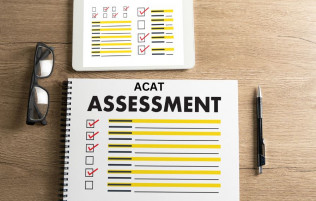Reducing the risks of Dementia

What is dementia?
Dementia is not a specific condition or disease. It is a term that is used to describe a range of symptoms associated with loss of memory, thinking skills and behaviour skills that significantly reduce a person’s ability to perform everyday activities.
Dementia is caused by damage to brain cells. As a result, brain cells have difficulty communicating with each other. The type of dementia that a person has depends on which cells have been damaged.
Five key risk reduction strategies
Here are five key risk reduction strategies to reduce the risk of dementia.
1. Diet and nutrition
Some diets are regarded as being ‘brain healthy’. Prepare meals high in dietary fibres, fruits, vegetables, whole grains, potassium, calcium, magnesium and vitamins B-12, C, D, E; and low in cholesterol, saturated fat, sugar and salt. One well known diet that is recommended by nutritionists is the Mediterranean diet.
Key features of the Mediterranean diet are:
- Primarily eating plant-based foods, such as fruits and vegetables, whole grains, legumes and nuts.
- Limiting red meat conception to about once a week.
- Eating fish and poultry at least twice a week.
- Replacing butter with healthier fats such as olive oil and canola oil.
- Flavouring food with herbs and spices rather than salt and sugar.
- Snacking on nuts during the day.
- Eating fresh fruit for dessert.
- Consuming a moderate amount of wine but with food.
2. Alcohol intake
Long-term, excessive consumption of alcohol can lead to dementia, particularly a form known as Korsakoff’s syndrome (see Types of Dementia). However, today, some dementia researchers suggest that low-moderate alcohol consumption can actually reduce the risk of dementia by increasing blood flow to the brain and reducing inflammation.
3. Exercise
Regular exercise helps blood and oxygen flow throughout the body, including to the brain, keeping the brain active and less susceptible to cell damage. Exercise does not need to be strenuous, just ensure that it is regular (about 30 minutes a day). Two categories of exercise are considered particularly beneficial. These are cardiovascular exercise and resistance training. Cardiovascular exercise strengthens the heart. Cardiovascular activities include swimming, running, steady walking, and cycling. Resistance training strengthens muscles and includes lifting weight, push-ups and sit-ups.
The most important things to remember when building exercise into your life is:
- Do it regularly, preferably every day.
- A small amount of exercise is better than none.
- Mix your activities between cardiovascular and resistance exercises.
4. Intellectual stimulation
Keeping your brain intellectually active creates new connections between brain cells and strengthens existing connections. This can delay the onset of dementia and decrease its impact. Research suggests there is a lower risk of developing dementia among people:
- with higher levels of education
- employed in more mentally demanding occupations
- who participate in more intellectually stimulating leisure activities.
People who did not complete high educational levels, or who worked in less mentally demanding occupations can still undertake many intellectual activities that may help reduce the risk of dementia. These include:
- Reading
- Doing puzzles such as crosswords and sudokus
- Actively listening to radio and podcasts
- Participating in discussion groups
- Visiting museums and similar institutions
- Attending classical music concerts.
Making a commitment to the notion of lifetime learning is a great thing to do.
5. Social activity
It is important to maintain social interaction. Socialisation stimulates connections between the brain cells. Certainly, constant engagement with family, friends and colleagues promotes mental activity that keeps one’s brain healthy.
- Ways to remain socially active include:
- Joining social groups
- Volunteering for an organisation
- Organising regular catch-ups with friends, family and/or colleagues
- Continuing to work, even part-time.
Support and care
An individual diagnosis of dementia has an impact on a network of people: friends, families and colleagues. Support and further information is available from the National Dementia Helpline 1800 100 500 or at www.dementia.org.au.
If you are searching for care and support for your loved one, do not rush into the first available option. Visit CareAbout to check various options and facilities, particularly focusing on those who provide specialist dementia care.







